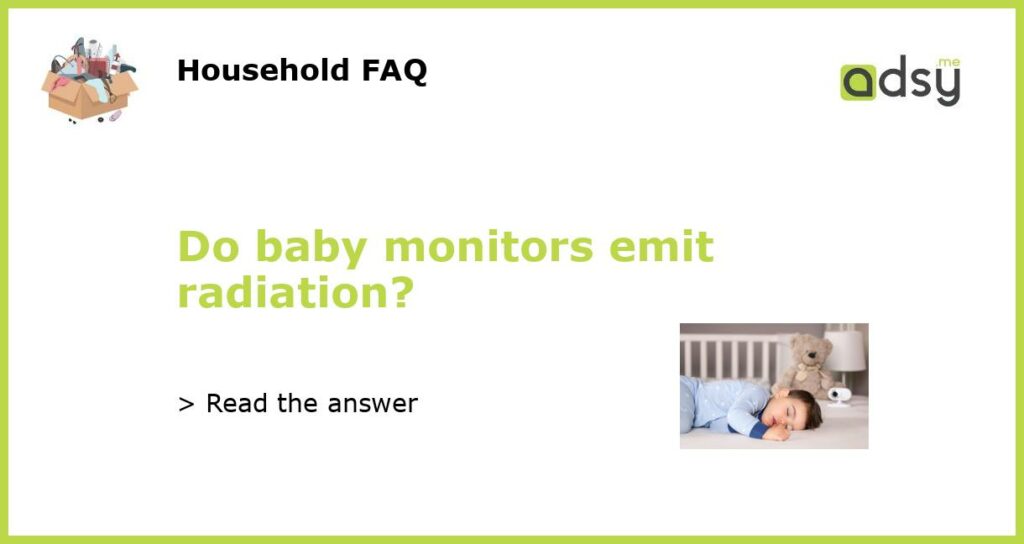What is a baby monitor?
A baby monitor is an electronic device that allows parents to listen to their baby’s sounds, movements, and even see the baby through a camera, from another room. This device is very helpful for parents who want to supervise their children while performing their household activities or who want to have a good night’s sleep knowing their babies are safe.
Do baby monitors emit radiation?
Yes, baby monitors emit radiation, but the amount of radiation is quite small and not harmful to human health. Baby monitors transmit signals through radio waves or Wi-Fi signals, which are low-frequency electromagnetic fields. These waves are not as strong as the radiation emitted from microwaves or cell phones. Therefore, the World Health Organization (WHO) and the American Academy of Pediatrics (AAP) have not found any significant evidence that baby monitors cause any harm to babies or adults.
What are the types of baby monitors available in the market?
There are several types of baby monitors available in the market, such as:
- Audio Baby Monitors – These monitors send sound signals to the parents’ device, allowing them to hear their baby’s sounds or cries.
- Video Baby Monitors – These monitors have cameras that send video signals, allowing parents to see their baby’s movements, facial expressions, and positions.
- Movement Monitors – These monitors use sensors or pads placed under the baby’s mattress, sending alerts to parents’ device if the baby stops moving or breathing.
- Smart Baby Monitors – These monitors are equipped with advanced technology such as two-way communication, remote access, night vision, temperature sensors, and mobile app integration.
How can parents reduce radiation exposure from baby monitors?
Even though baby monitors’ radiation is considered safe, some parents may still want to reduce their exposure to levels as low as possible. Here are some tips for reducing radiation exposure:
- Choosing a low radiation monitor – Look for monitors that emit lower radiation levels, such as analog monitors or monitors with DECT technology.
- Keeping a safe distance – Place the monitor at a safe distance from the baby’s crib, as recommended by the manufacturer’s guide.
- Turning off the monitor – Turn off the monitor when it’s not in use or limit its use to necessary times only.
- Selecting a wired baby monitor – Choose wired monitors that don’t use radio waves or Wi-Fi signals, and thus emit no radiation.
- Avoiding electromagnetic devices – Avoid placing baby monitors close to other electronic devices that emit electromagnetic fields such as Wi-Fi routers or cell phones.
Overall, baby monitors emit low levels of radiation that are considered safe and not harmful to human health. However, parents who want to reduce their exposure to radiation may choose low radiation monitors or follow some simple steps to minimize their exposure. It’s essential to make an informed decision and choose the type of monitor based on personal preferences, needs, and budget. In any case, it’s important to ensure that the baby monitor complies with safety and quality standards and that it’s used safely and responsibly.






